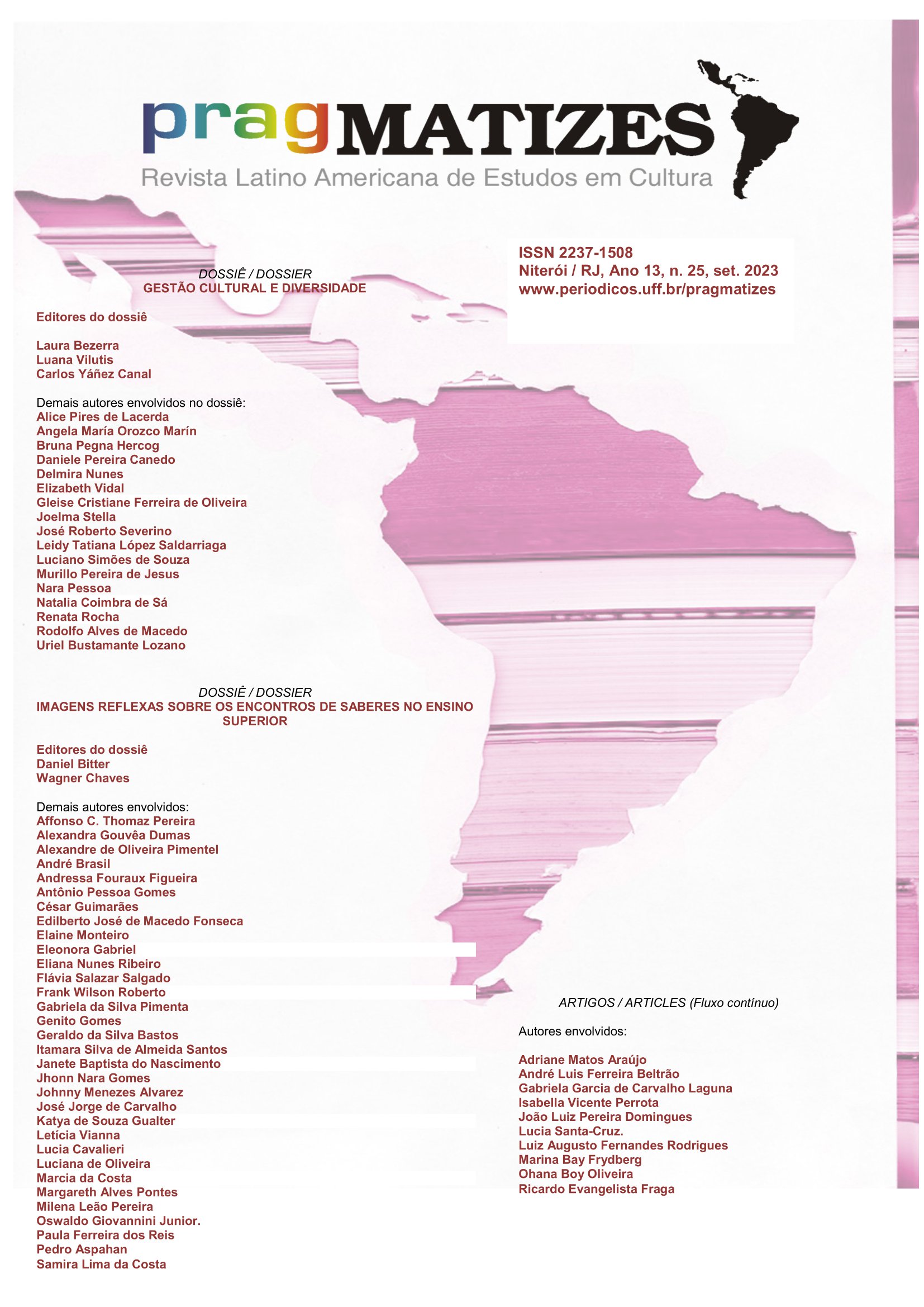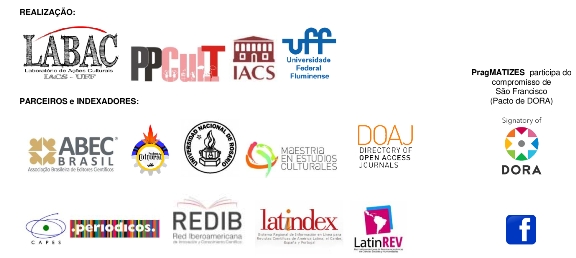Formation cycles
universitary extension and the political pedagogical formation aside traditional peoples and communities at the IFRJ Nilopolis experience
DOI:
https://doi.org/10.22409/pragmatizes.v13i25.57936Keywords:
IFRJ Nilópolis, universitary extension, traditional peoples and communities, knowlwdge dialoguesAbstract
Since mid-2018, we have been carrying out, within the scope of the institutional extension programs of the IFRJ campus Nilópolis, projects, courses and events that deal with the theme of traditional peoples and communities – indigenous, caiçaras, quilombolas and periphery groups and collectives. Our proposal, inspired by the Meeting of Knowledge, aims to promote the transit between the formal space of the academy and the multiple spaces of knowledge, practices and experiences conceived as culture. Traditional here is taken as a form, and less as a content: it is a doing, living, occupying, producing traditionally by these peoples and communities. As an extension project, we intend to build a bridge between the institution's territory, the Baixada Fluminense, and these forms of non-academic knowledge. Thus, teachers from local schools, professors, students, researchers, social movement activists became the recurring public of the different projects developed during this period, with relevant acceptance and impact. In this article, we will discuss the epistemological principles, themes and experiences developed in these years in our projects.
Downloads
References
ALMEIDA, Alfredo W. B. Terras tradicionalmente ocupadas: processos de territorialização, movimentos sociais e uso comum. Revista Brasileira de Estudos Urbanos e Regionais, ANPUR, v. 6, n. 1, maio 2004
ASCELRAD, Henri (org.). Cartografias sociais e território. Rio de Janeiro: Universidade Federal do Rio de Janeiro, Instituto de Pesquisa e Planejamento Urbano e Regional, 2008.
CARVALHO, José Jorge de. ‘Espetacularização’ e ‘canibalização’ das culturas populares na América Latina. Revista Anthropológicas, ano 14, vol.21, n. 1, p. 36-76, 2010.
CARVALHO, José Jorge de. Encontro de Saberes: bases para um diálogo interepistêmico. Brasília: INCTI/CNPq/UnB, 2015.
CARVALHO, José Jorge de; ÁGUAS, Carla L.P. Encontro de Saberes: um desafio téorico, político e epistemológico. In: CUNHA, Teresa; SANTOS, Boaventura de S. Colóquio internacional Epistemologias do Sul: aprendizagens globais Sul-Sul, Sul-Norte e Norte-Sul. Atas: Coimbra. Centro de Estudos Sociais, 1017-1027, 2015.
CARVALHO, José Jorge de; FLÓREZ, Juliana. Encuentro de Saberes: proyecto para decolonizar el conocimiento universitario eurocéntrico. Nômadas, n. 41, p. 131-147, 2014;
CLASTRES, Pierre. A sociedade contra o Estado. São Paulo: Cosac & Naify, 2011.
DIEGUES, Antonio Carlos. O mito moderno da natureza intocada. São Paulo: HUCITEC, 2008.
LITTLE, Paul. Mapeamento conceitual e bibliográfico das comunidades tradicionais do Brasil. Brasília: Universidade de Brasília, 2006.
SHIRASHI NETO, Joaquim (org.). Direito dos povos e das comunidades tradicionais no Brasil: declarações, convenções internacionais e dispositivos jurídicos definidores de uma política nacional. Manaus: UEA, 2007.
Published
How to Cite
Issue
Section
License

This work is licensed under a Creative Commons Attribution 4.0 International License.
By forwarding an original to PragMATIZES, the authors agree that the copyright related to it is transferred to the Publishing. Articles and other writings are made available in PDF format from their publication, and they can be downloaded to institutional repositories and personal pages, provided that with their proper bibliographic indication.



